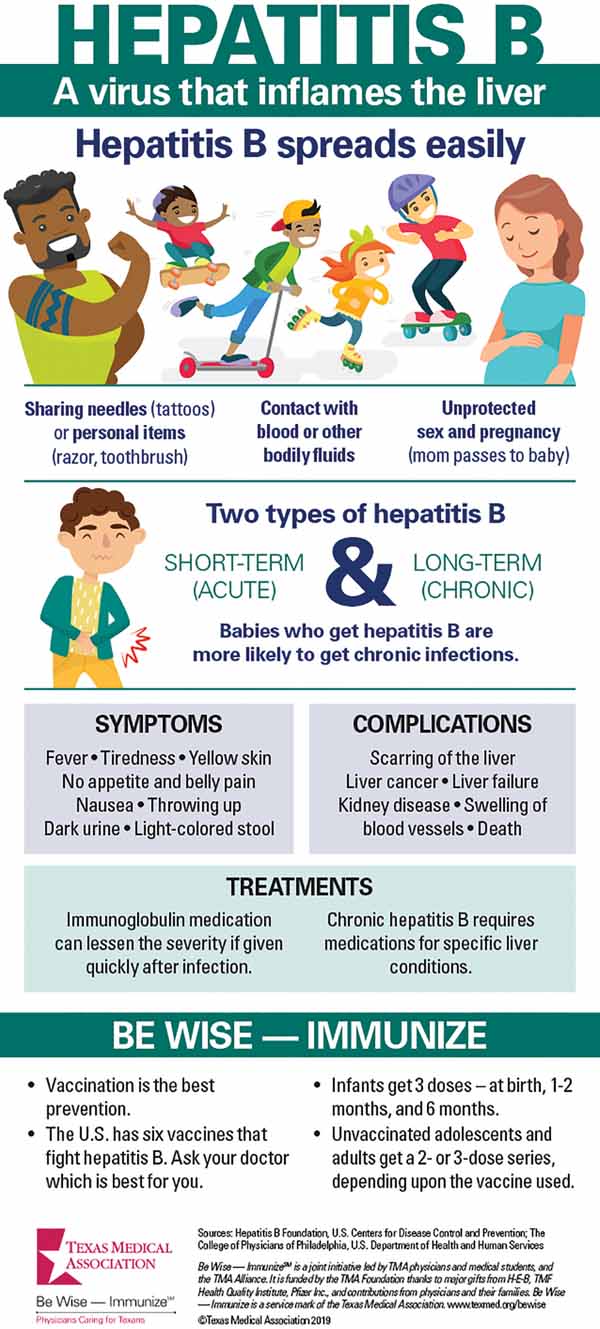There is a lot of misinformation about vaccines, so each month Texas Medicine magazine highlights a disease that childhood and adult immunizations can prevent. The material is designed to help you talk to your patients about the severity of these diseases and to help them understand the benefits of vaccines.
Texas Medicine recently highlighted Hepatitis B, a viral liver infection that spreads through contact with blood and other bodily fluids.
Hepatitis B has two stages: acute and chronic. The acute stage is often symptomless, making the disease easy to spread unknowingly. The acute stage normally resolves within six months. But if it becomes chronic, the condition can cause lifelong health problems like cirrhosis (scarring of the liver) and liver failure.
Infants should receive a three-dose series of vaccinations against the disease – at birth, 1-2 months, and 6 months. Unvaccinated adults and adolescents should get a two- or three-dose series, depending upon the vaccine used.
For more information about talking to your patients about Hepatitis B, including a printable copy of the infographic below and a simple educational video, see the Texas Medical Association’s website.
TMA designed the series to inform patients of the facts about these diseases and to help them understand the benefits of vaccinations to prevent illness. Diseases covered so far include:
- Flu,
- Measles,
- Mumps,
- Polio,
- Tetanus,
- Pneumococcal disease,
- Human papillomavirus (HPV),
- Chickenpox and shingles,
- Hepatitis A,
- Pertussis (whooping cough),
- Rubella (also known as German measles), and
- Rotavirus.
Visit the TMA website to see efforts to raise immunization awareness and how funding is used to increase vaccination rates.
TMA actively works to improve vaccination rates in Texas through its Be Wise – ImmunizeSM program. More than 340,000 shots have been given to Texas children, adolescents, and adults since the program began in 2004. It is funded in 2019 by the TMA Foundation thanks to H-E-B, TMF Health Quality Institute, Pfizer Inc., and gifts from physicians and their families.

Last Updated On
September 11, 2023
Originally Published On
May 14, 2019